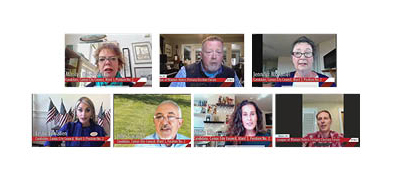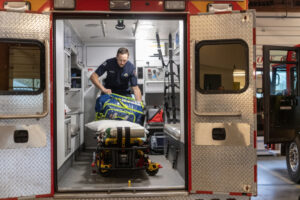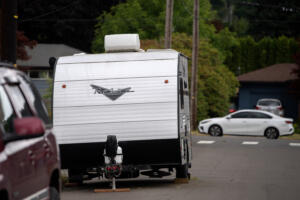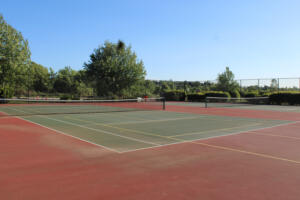Candidates vying for two positions on the Camas City Council shared their views on everything from the city’s need for affordable housing and the future of Camas’ parks and open spaces to racial inequities and policing accountability during a July 10 online candidate forum hosted by the League of Women Voters of Clark County.
Three candidates running for the Council’s Ward 1, Position 2 seat currently held by Councilwoman Melissa Smith — Marilyn Dale-Boerke, a 35-year resident of Camas and current head of human resources at the Camas School District; Shawn High, a former Camas Library Board trustee and current member of the city’s planning commission; and Geoerl Niles, pastor of The Calling Church and also a member of the Camas Planning Commission — attended the League’s pre-primary forum. A fourth candidate, Gary Perman, owner of the PermanTech Search Group, was out of town and unable to attend the forum.
All four candidates running for Camas Mayor Pro Tem Ellen Burton’s Ward 3, Position 2 seat attended the forum. They include: Alicia King, a fourth-generation Camasonian, flight attendant and founder of the nonprofit Just a Girl in Camas media platform, which features community standouts; Leslie Lewallen, a retired attorney, former judicial clerk and mother of four children in the Camas School District; Jennifer McDaniel, a former Washougal City Council member who relocated to Camas in 2017 and has experience working on community boards and committees for Meals on Wheels, the local Chamber of Commerce, UNITE Washougal, and the Clark College Business Advisory Board; and John Svilarich, a 20-year Camas resident who currently chairs the Camas School Board’s Citizens Advisory Committee and is president of the Deer Creek Homeowners Association.
Voters should receive ballots in the mail for the Aug. 3 primary and special election no later than July 21. Not all Clark County voters will receive a ballot for this election. In Camas, only those voting in the Ward 1, Position 2 and Ward 3, Position 2 city council races will receive ballots. Washougal voters also will receive ballots to help narrow that city’s mayoral race. The top two finishers from the Aug. 3 primary election will move on to compete in the November general election.
Though the League of Women Voters typically hosts its candidate forums at the Camas Public Library, the ongoing COVID-19 pandemic forced the forum online this year. Candidates had one minute to respond to each question.





